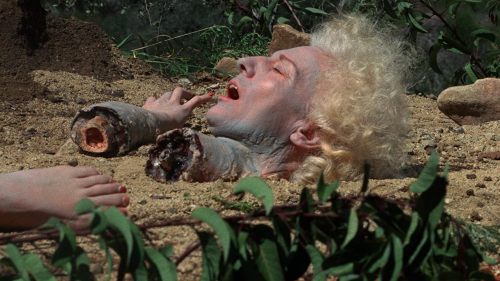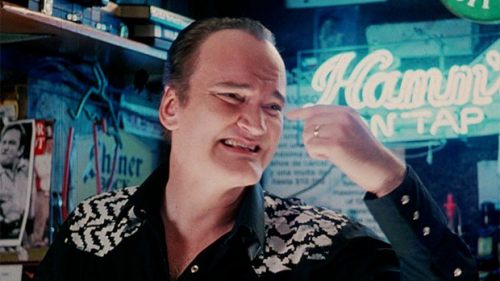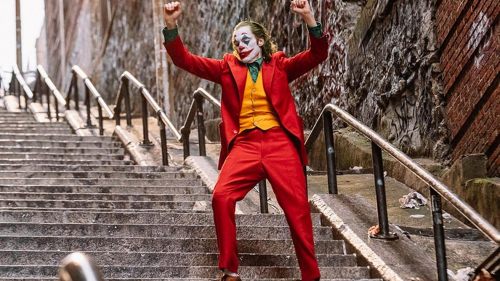The Strange History Of Charles Manson’s Failed Music Career
Once Upon a Time in Hollywood is almost here. Get your tickets now!
(Image used via Wikimedia Commons)
Jeff Guinn's book Manson: The Life and Times of Charles Manson plainly lays out the heights that the one-time spiritual leader aspired to in the years leading up to the heinous murders he orchestrated in the summer of 1969. The dollar-store version of the likes of Bob Dylan and Joan Baez, Manson saw the social upheaval of his country and distilled his observations and experience into song. The man who conducted a sweltering night of five brutal murders in his name wanted to be a folk singer.
Manson was already proximal to an industry that fueled stardom on a daily basis. In early 1968, he and his followers took up residence at Spahn Ranch, which had 55 sprawling acres of seclusion in Los Angeles County. Its dry, rocky terrain was the perfect shooting site for westerns, and the Family earned their keep by helping out with the horse rental business that made up the bulk of owner George Spahn's income. A stellar BMD interview with stuntman Gary Kent reveals that Manson himself was, to no one's surprise, a smelly, small scammer.
An odd twist of fate landed a pair of Manson's girls in the back of a Beach Boy's car. In early 1968, Patricia Krenwinkel and Ella Jo Bailey were hitchhiking and got picked up by drummer Dennis Wilson. They had no idea who he was, but their Dear Leader did. Once he learned of the random rendezvous, he tracked Wilson down, entered his home, and quickly ingratiated himself with the pop artist. The following months saw the small-time pimp bringing his girls around to Wilson's Pacific Palisades house and, eventually, slithering his way into a studio with his successful new friend.
Charlie's quest for fame wasn't on the big screen; he wanted to sing the song of his people. From 1967-68, he recorded his own penned tunes on tape and titled the album Lie: The Love and Terror Cult. On-the-nose titles abound: "People Say I'm No Good", "Ego", "Sick City". Some jams illuminate his own carjacked corner of the hippie counter-culture, utilizing it as a vehicle to affect social change by showing the world what his daily battle for survival is like. For a far more impactful example of this approach, give literally any of Leadbelly's discography a spin. Where he could have used his music as a bridge to cross the cultural divide, the career hoodlum instead chose to waterboard the listener with uncut filler about Freud and dumpster diving.
The songs were aggressively average staples of the folk-rock genre: disdain for cops, freedom in the hobo lifestyle, copious references to birds. Behind the music was an ethos, and that ethos was rooted in racism and LSD-fueled madness over an ever-pending apocalyptic race war that Charlie called "Helter Skelter". Blacks and whites would riot to the death, and The Family would be the phoenix to rise from the ashes and rule the world, so said Charlie. His zeal to connect the dots resulted in what could best be described as proto-Redditor reaching within the pages of The Bible and the margins of The White Album. Guys, it's time for some game theory:
“Everyone should feel proud, Charlie declared - not only was The White Album The Beatles' collective call-to-arms to the entire world, it was specially directed to Charlie and the Family. He preached... that a black uprising was imminent and not just because The Beatles said so, but The Bible. Revelation, Charlie explained, predicted that locusts would come, and locusts were, of course, beetles—the Beatles. John said that the locusts would have “scales like iron breastplates”—according to Charlie, these were the Beatles’ guitars. And there was more: Revelation also told of angels coming to earth, with the first four being the Beatles. The fifth, 'given the key to the shaft of the bottomless pit,' was Charlie.” - Manson, p.195
The man that Xan Brooks of The Guardian once described as "the bespoke vermin of the American counterculture" had some harbinging of his own to do. After The Beach Boys purchased "Cease To Exist" from Manson, the plan was to have the song included on their 20/20 album, which would get a December '69 release. Instead, Brian Wilson recomposed the song into another, titled "Never Learn Not To Love", changing it from blues to a more on-brand pop sound. The cherry on top: Wilson took compositional credit for it all when the band dropped it as a B-side single (aside "Bluebirds Over The Mountain") a year prior to the album's release. It was a treachery on its own, but the song's failure to climb higher than the #61 spot on the music charts rubbed salt into the wound. Without any clout from that single, Manson feared that no producer would be interested in him, and he was right. Despite flogging the life out of the meager connections he had made in the SoCal music scene, neither Universal nor Brother Records would give him the time of day. Now he was longer an aspiring artist, but a failed one who bricked the single greatest longshot he had.
There was still one Hail Mary. Manson's connection to Dennis Wilson yielded a glimmer of hope: on the second night that the Family partied at his home, the drummer called up a friend, Derek Jakobson. Jakobson happened to be a talent scout for none other than Terry Melcher, a bigwig producer who had worked with The Byrds, Paul Revere & The Raiders, and The Mamas & The Papas. Charlie knew the game by now and assigned one of his girls to spend time with the married man, all to the drone of the hippie's guitar. Eventually, he got his wish and was granted an audience with Jakobson's boss.
Melcher had visted the Family here and there at Spahn Ranch commune, and he repped Columbia, one of the few places that hadn't yet rejected ol' Fraud Dylan. In May of 1969, the big day came and Melcher finally sat down for a live show at the Ranch. Mary Harron's Charlie Says dramatizes this performance with the necessary supercritical levels of cringe; the girls, ordered to don skimpy deerskin outfits, gyrated to their master's strums and twangs as they had previously rehearsed. The show was a bomb, and Melcher left without signing Charlie (though he did pass him some pity cash, which Charlie hailed to his minions as "an advance on a record deal"). Another desperate performance a month later yielded the same results from Melcher, as Guinn relates: "You're good, but I wouldn't know what to do with you." Later, at the Tate-LaBianca murder trial, he testified a more direct burn, "I wasn’t impressed enough on that level — as far as his musical talents — to want to pursue it and make a record." There were a few more pithy efforts to ping on the radars of Frank Zappa, Mama Cass, and The Doors' producer Paul Rothchild, but no dice. It was over.
The fallout from this massive disappointment cannot be understated. Manson gave it the old Rasputin spin, telling his confused Family members that, actually, this was a confirmation of his foretellings. He had been betrayed, and his Judas wore shades and a mohair suit. A message needed to be sent, the dirty hippie claimed. A little something to kick-start Helter Skelter and to show Mr. Big Shot Columbia that nobody betrays Charles Manson.
It was the late summer of 1969.



